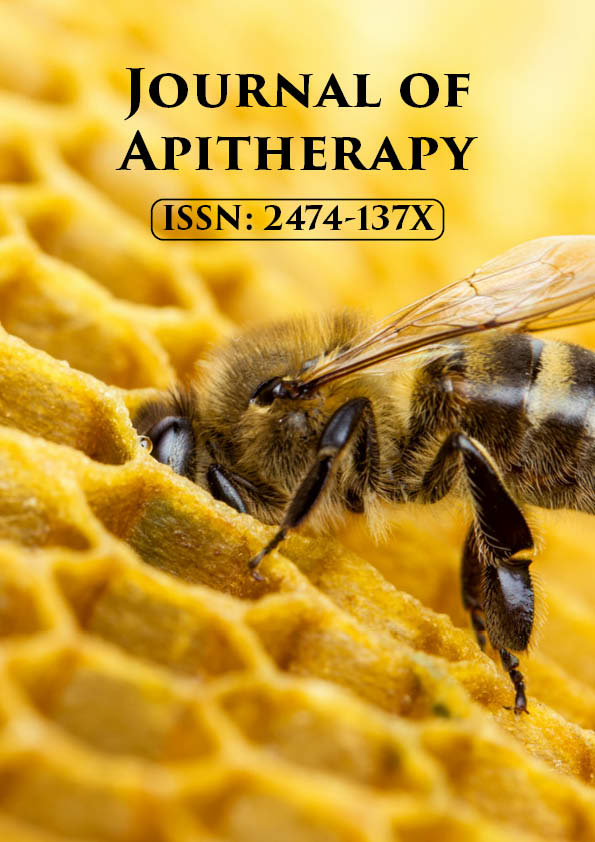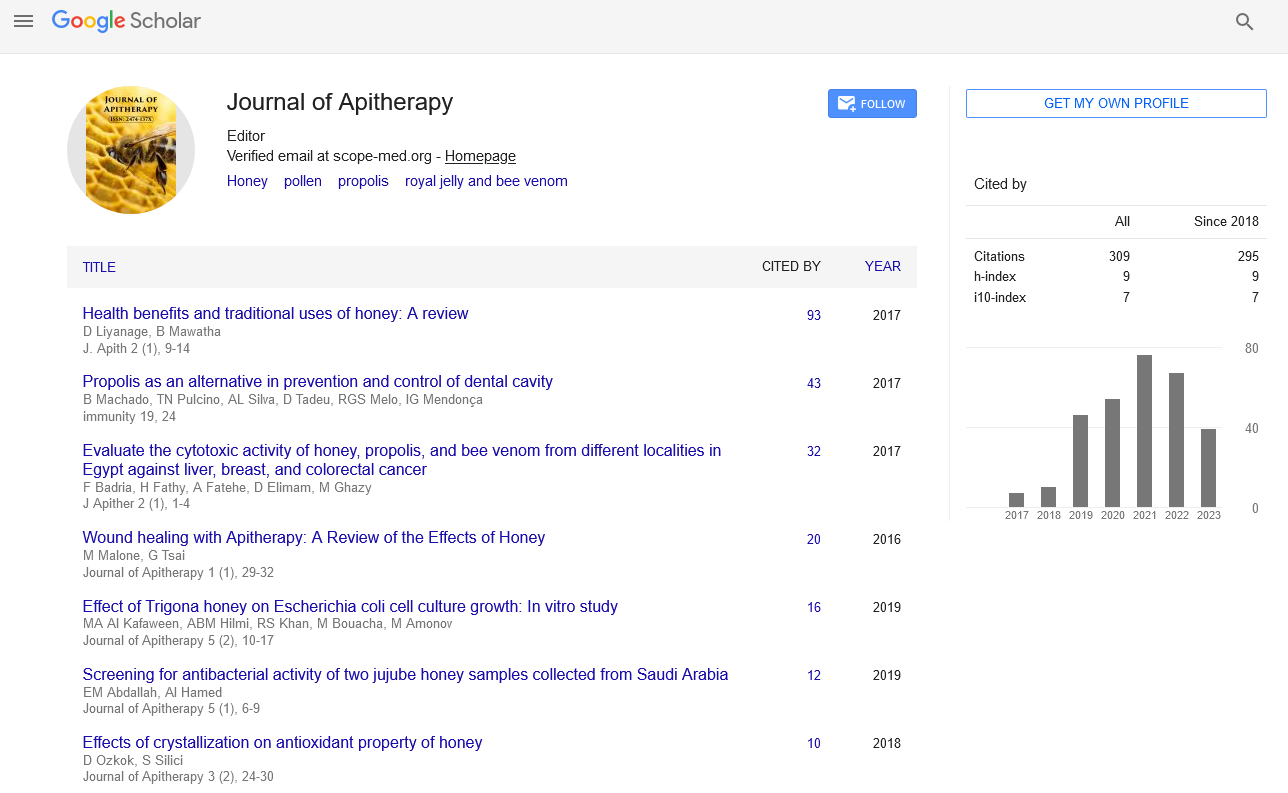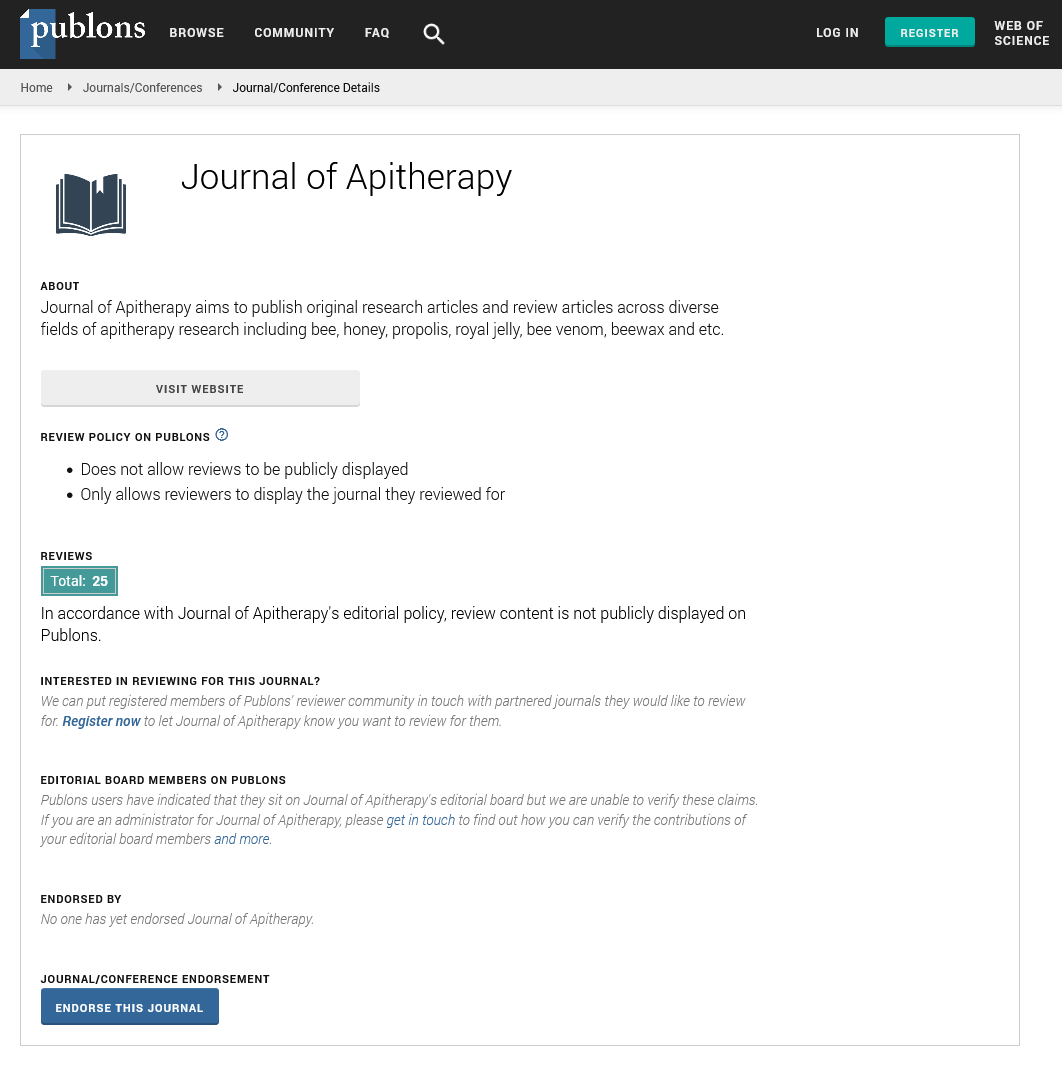Effect of Trigona honey on Escherichia coli cell culture growth: In vitro study
Abstract
Mohammad Abdulraheem Al Kafaween, Abu Bakar Mohd Hilmi, Rao Sanaullah Khan, Mabrouka Bouacha ,Malik Amonov
Aim: This study aimed to investigate the antibacterial activity of Trigona honey against Escherichia coli.Methods: The antibacterial activity of honey was examined by agar well diffusion assay, minimum inhibitory concentration (MIC), minimum bactericidal concentration (MBC), and time-kill curve assay. Bacterial strains were cultivated in microtiter plates with varying concentrations of honey (10%, 20%, 30%, 40%, and 50% w/v) for specific incubation time (24, 48, and 72 hours) at 37oC. Results: Agar well diffusion assay showed that Trigona honey had the highest antibacterial activity against E. coli with 18.2 ± 0.6 mm. The MIC value against E. coli was 10% (w/v) and MBC was 30% (w/v). In time-kill curve, Trigona honey has inhibited E. coliin a 4 log10 at 18 hours, and total viable counts were killed after 24 hours. It was found that even ≥30% Trigona honey dilution interfered significantly with E. coli cell culture growth. Moreover, it was found that a difference of more than 10% honey concentration between the treatments was considered significant to produce inhibitory effects. This study has shown that Trigona honey has significant inhibitory effects on E. coli growth in vitro. Trigona honey may be used as an alternative to antibiotics in controlling infections caused by E. coli. However, further investigation is required to strengthen this argument.
PDF






